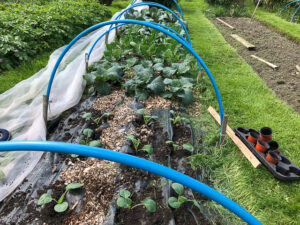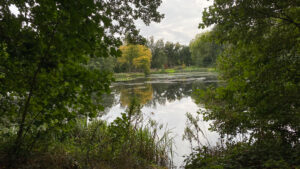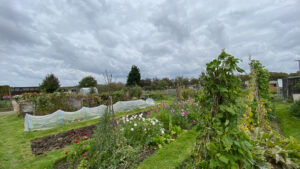For a few days last week, the forecast was for thunderstorms during the late afternoon and evening with associated heavy showers. However, apart from one very short sharp shower on Wednesday night, they were all further west and missed us.

The rainfall from a few days ago transformed the ground at the allotment and the dry hard earth that resembled concrete was converted into diggable soil. I’d three big beds left to dig over and I decided to tackle these with the cultivator on Tuesday afternoon. I’d an idea about the order I was going to tackle these beds in starting with the easiest first and leaving what I thought would be the trickiest to the end.
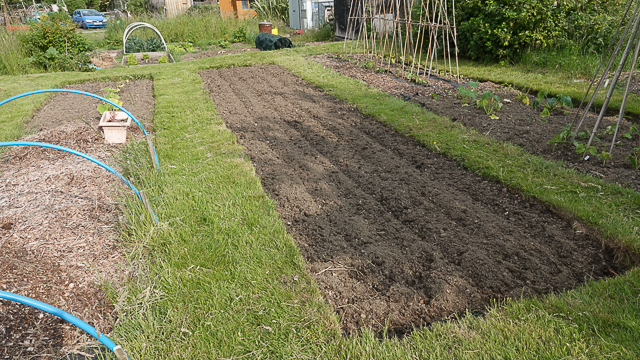
The first bed turned over the easiest and after a couple of runs up and down with the cultivator apart adding a bit of fish blood and bone fertiliser, it was ready for sowing seeds . The second bed was just as easy and was soon turned over and ready for planting up. I wasn’t so lucky with the third bed which I thought would be the most difficult because I thought it hadn’t dried out as much as the other two beds. My suspicions were correct and it was a bit on the too wet side to dig. It was also pretty hard so I decided to use the machine to turn over the ground and break it up a little bit. It will need turning over again when the ground is a little bit drier so that it’s in a suitable condition for planting. In the meantime, we’ve now got plenty of room to do some more sowing and planting.
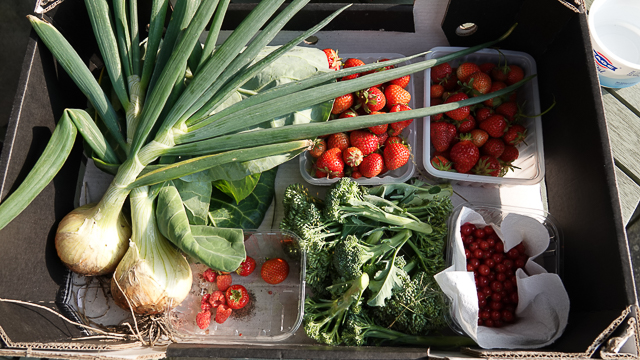
Besides getting lots more vegetables planted out and sown, harvesting is now getting a bit more varied and a lot more productive. We had our first picking of redcurrants this week. We will have to harvest them as they ripen or the resident blackbirds will be only too happy to finish them off. There’s already plenty of evidence that they are already helping themselves to the ripe berries.
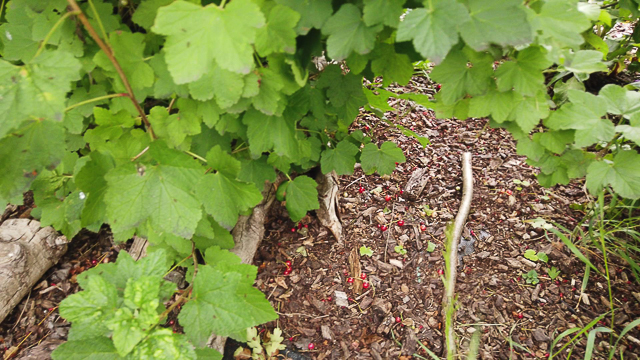
Thinking about fruit on the ground, we’ve got lots of immature fallen apples but it’s not a result of any pest damage but the results of June drop.
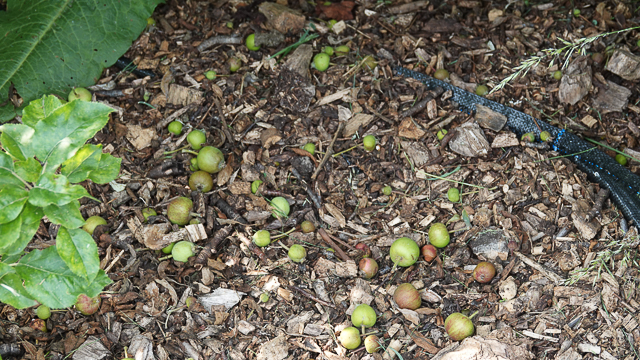
Even though the tree has lost many small fruits there are still lots left on the tree.
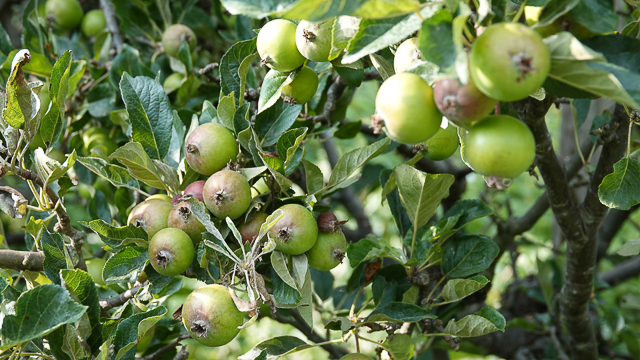
All advice is that we should remove lots of the remaining fruit in order to get larger apples at harvesting time, a case of quality rather than quantity. I have to admit it’s something we’ve never done. Sue was considering removing some of the tiny apples this year in order that we get larger apples. We’ll have to wait and see if we do actually get round to thinning the fruits out.
